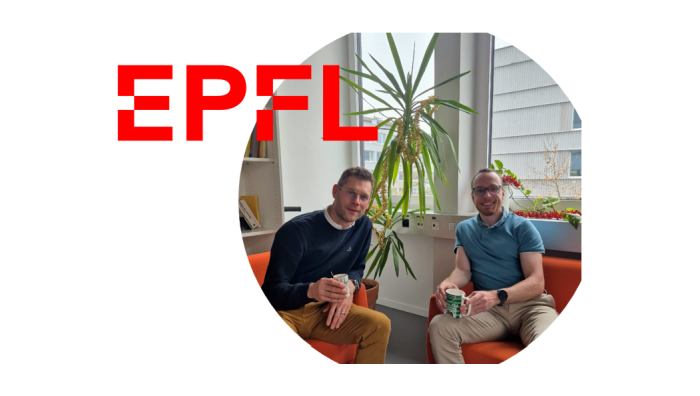Get to know Antonin Faes and Paul Rémondeau from EPFL
What was your original motivation to become a researcher/project manager?
Paul: I started as a Data Scientist and continued as a Software Engineer to improve my coding skills and knowledge. I believe efficient software is important in an energy efficient society.
Antonin: When I graduated after my studies in Materials Sciences, I understood that this speciality was created during the industrial revolution, and I also understood that materials science will be central for the energy transition. This was my main motivation for working in BIPV field and actively helping the energy transition in Europe!
What is your (main) research area(s) today?
Paul: I mainly work on a PV monitoring solution platform, that allows easy comparison of modules on live data. This allows users to have access to data and evaluate KPIs such as performance ratio and efficiency without required knowledge in database management and coding.
Antonin: Building Integrated PV (BIPV) is a very important topic at EPFL PV-Lab. We are focusing on characterizing and understanding the degradation of BIPV module in terms of performance and colour during indoor accelerated test (like thermo-cycles or damp-heat) and in outdoor conditions.
What is the main focus of your team in SPHINX?
In the SPHINX project, we aim to monitor all demonstrators of the project and make all the data easily accessible for partners, even on a smartphone! We will also treat and use the data to analyse the degradation and quality of the PV system. On the other hand, EPFL is active in developing and testing small modules to be produced in the SPHINX pilot-production in Freiburg.
Could you describe your favourite moment/satisfaction when working for the project and – more in general – for your organization?
Antonin: Many moments are enjoyable during the SPHINX project because we are a very enthusiastic team developing the next BIPV generation that is shading-tolerant and fully integrated! The general assemblies are exiting as we meet motivated people from various countries and specialities.
Paul: I really enjoy the general assemblies; it is a pleasure to meet everyone from the project.
How do you expect SPHINX results will affect your organization and the PV energy sector?
Antonin: SPHINX already started to change EPFL PV-Lab as now we are developing a data collection and visualisation dedicated to PV energy production and storage. We are also gaining a better understanding of module bill-of-materials for TOPCon cells and in particular for matrix-shingle cell assembly, the central development and industrialization within SPHINX project.
Paul: SPHINX will help us improve our monitoring tools and techniques, especially on the data visualisation part.
Which partner would you like to nominate next for this coffee break?
Jose M. Vega de Seoane


